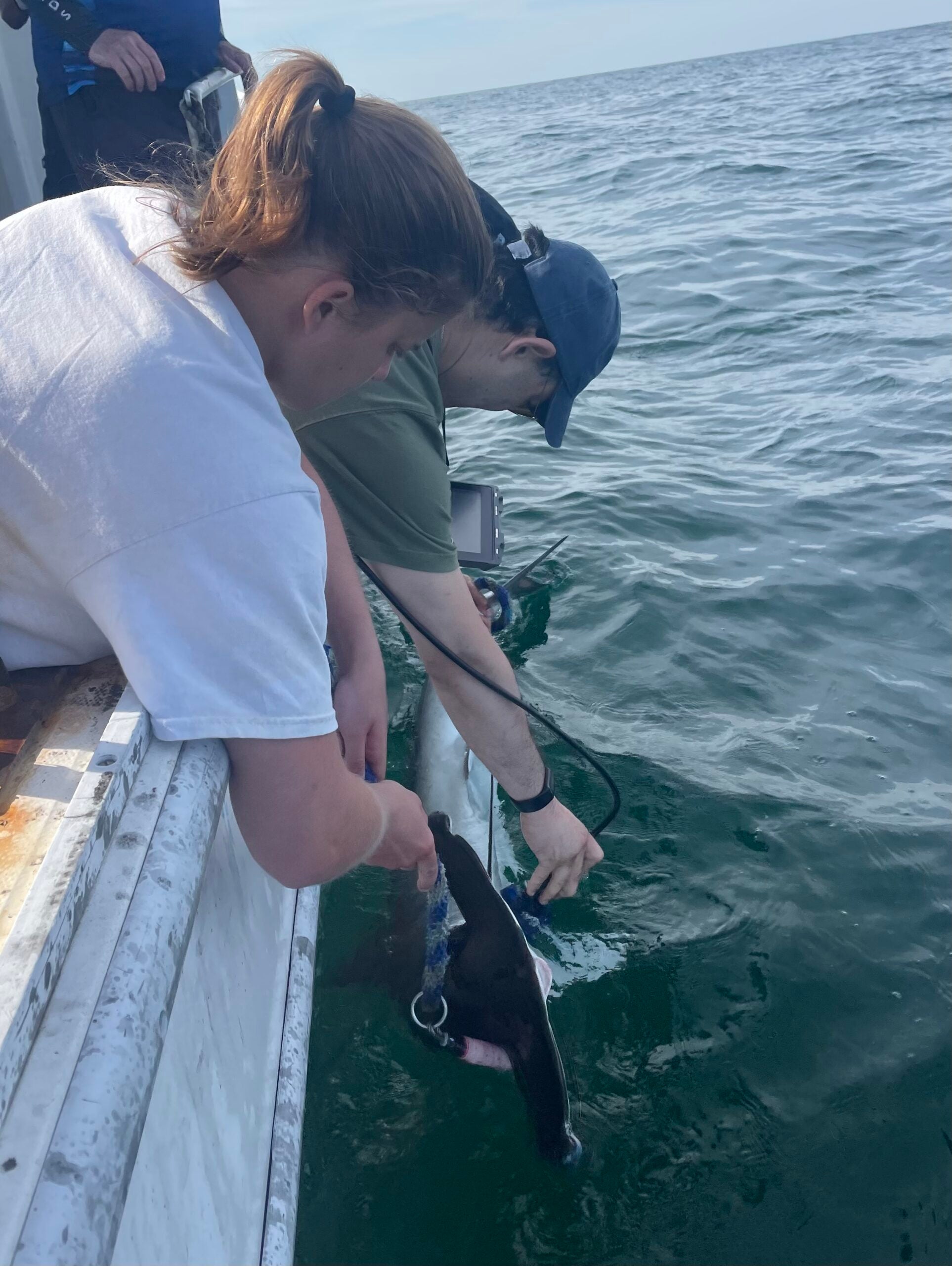Mary Brantley of Charlotte, North Carolina, is studying marine biology and marine science and went fishing for the first time this summer. The first fish she ever caught? A mako, considered the fastest shark in the sea.
Brantley assisted in the research of Professor Bradley Wetherbee, an assistant professor of biology affectionately known on campus as “the shark guy.” For the past two semesters, she helped him study data on tiger shark movements in French Frigate Shoals, a small atoll in northwest Hawaii. This summer, as part of a Coastal and Environmental Fellowship, she was able to continue data analysis while also participating in field work with Wetherbee—the latter of which included long days of shark fishing in Narragansett Bay.
After catching bluefish – the bait for the day’s work – the research team parked their boat and waited for sharks to bite. “We attached snooters to the shark’s head and tail so we could lift it on board. This became my favorite part of the job,” says Brantley. “Once it was on board, we pumped water through the shark’s gills to keep it alive while taking morphological measurements and tagging it. Finally, we slipped the shark back into the water, reinserted the rods and waited until we could repeat the process.”
“We caught a tiger shark,” she adds. “It was the first tiger shark that Professor Wetherbee caught in Rhode Island, and it was really cool to get the rare opportunity to see the shark I’ve been learning about all year.”
The days of her fellowship spent analyzing data were less eventful—wrestling with wild animals was not on the agenda—but proved just as valuable. She organized and analyzed data on seasonal and daily movement patterns of tiger sharks in relation to the availability of prey. “I was surprised by the number of ways I could analyze the data I was given,” she notes. “Every time I thought I was done with the project, we found another way to look at this dataset to best visualize it and better understand tiger shark movements.”
Wetherbee stresses the importance of providing students with hands-on research experience. “(Brantley) came to URI to take advantage of the opportunities that URI offers students with interests that are hard to find at other institutions,” he says. “These fellowships give students the opportunity to immerse themselves in research and learn many things that they would never learn in a classroom. Fellows have the chance to do what they have sometimes dreamed of doing since childhood.”
As for her future career as a marine biologist, Brantley notes that gaining experience in the crucial components of data analysis and fieldwork was formative. “I’ve never had the opportunity to work with marine animals on such a large scale before, and it really solidified my decision to continue doing fieldwork in my future career. Currently, I want to continue doing fisheries research, particularly with sharks, and hopefully use that research to support conservation policy,” she says. “I’m now trying to program more analysis methods because you can never really predict how wild animals will behave. I’m constantly learning more from this project, and this summer was a great start to any further research I want to do.”
For more information, follow @URI_sharkresearch on Instagram!

